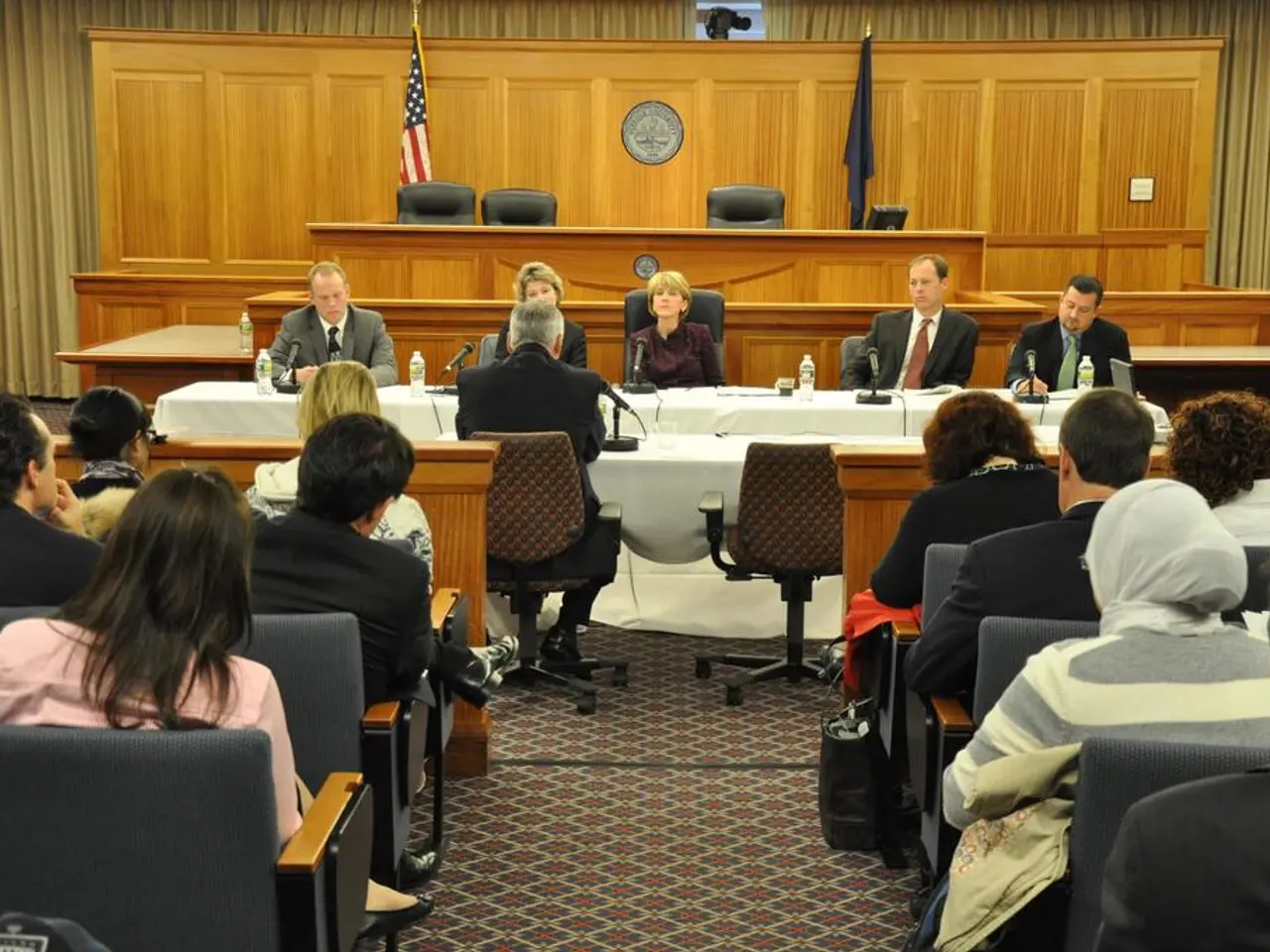Texas Governor Abbott's authority over the removal of Democratic legislators?
Texas Governor Greg Abbott has filed a quo warranto petition against state Representative Gene Wu, alleging that Wu abandoned his office by fleeing the state to block legislative action. However, the petition's legal merit is uncertain and controversial, with the Texas Attorney General Ken Paxton disputing Abbott's authority to file the suit.
The quo warranto petition, a legal procedure challenging whether a person has the legal right to hold an office, is historically initiated by the Attorney General or local prosecutors in Texas. Abbott's petition attempts to invoke the Supreme Court's original jurisdiction for issuing quo warranto writs, asserting that deliberate abandonment of office (such as fleeing the state indefinitely to avoid legislative duties) results in forfeiture.
However, Paxton's office has challenged Abbott’s authority to file the suit, citing court precedent that limits such actions to the Attorney General or local prosecutors. Paxton has indicated he may pursue separate legal action himself if Democratic lawmakers do not return by a set deadline, effectively reserving the official legal prerogative to act as the party to file quo warranto cases.
Legal experts are skeptical about Abbott's authority and the strength of applying quo warranto in this case, although the Texas Supreme Court has original jurisdiction over such matters. Abbott's argument relies on established precedent that office abandonment vacates the seat and that accepting funds to avoid duties could amount to bribery, but the procedural legitimacy of the governor directly initiating the removal is highly contested.
In an emergency petition for writ of quo warranto, Abbott argued Wu "forfeited" his office by fleeing the state. However, David Froomkin, an assistant professor of law at the University of Houston Law Center, argued that Wu has not legally abandoned his legislative position and created a vacancy. Froomkin stated that Wu has shown no intent to abandon his position, according to the legal precedent cited in Abbott's petition.
If the issue of removing legislators is eventually appealed to the U.S. Supreme Court, it could potentially be taken up, as it would be a significant issue if other states' legislatures were allowed to follow Texas in mid-decade redistricting. This case could set a precedent for the future of legislative power and the role of the courts in enforcing it.
In summary, the legal merit of Abbott’s quo warranto action is uncertain and controversial, primarily due to procedural standing issues, with the substantive claim of office abandonment being constitutionally recognized but requiring proper legal channel for enforcement. The Texas Supreme Court, composed entirely of Republicans, will have the final say in this matter, and their decision could have far-reaching implications for the balance of power in Texas politics.
- The quo warranto petition, typically initiated by the Attorney General or local prosecutors in policy-and-legislation matters, has been filed by Texas Governor Greg Abbott against state Representative Gene Wu, raising questions about the appropriate political channels for such actions.
- The general-news coverage surrounding Abbott's quo warranto petition against Representative Wu highlights a contentious situation, with legal experts skeptical about the petition's procedural legitimacy and the Texas Attorney General, Ken Paxton, challenging Abbott's authority to file the suit.







